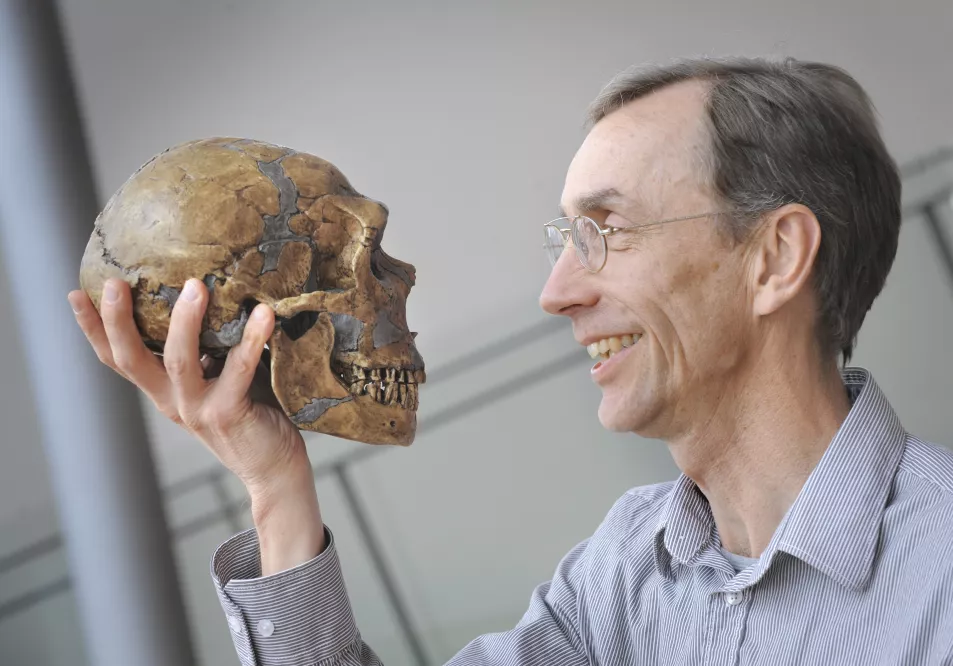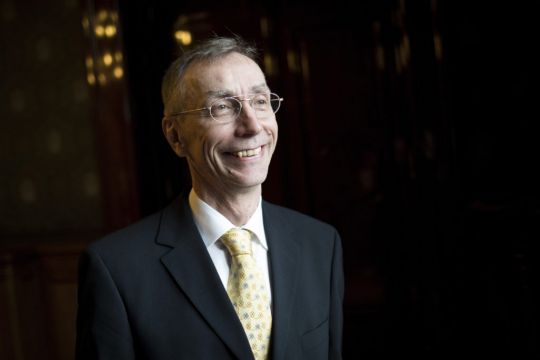This year’s Nobel Prize in physiology or medicine has been awarded to Swedish scientist Svante Paabo for his discoveries on human evolution.
Mr Paabo, 67, has spearheaded research comparing the genome of modern humans with our closest extinct relatives, the Neanderthals and Denisovans, showing that there was mixing between the species.
BREAKING NEWS:
The 2022 #NobelPrize in Physiology or Medicine has been awarded to Svante Pääbo “for his discoveries concerning the genomes of extinct hominins and human evolution.” pic.twitter.com/fGFYYnCO6J— The Nobel Prize (@NobelPrize) October 3, 2022
The Nobel panel said his research provides key insights into our immune system and what makes us unique compared with our extinct cousins.
Thomas Perlmann, secretary of the Nobel Committee, announced the winner on Monday at the Karolinska Institute in Stockholm, Sweden.
Mr Paabo has spearheaded the development of new techniques that allowed researchers to compare the genome of modern humans with the other hominins.
Learn more about the 2022 #NobelPrize in Physiology or Medicine
Press release: https://t.co/i5vP8KnAHQ
Advanced information: https://t.co/MoNFfSZP3G pic.twitter.com/mytWJBIDzB— The Nobel Prize (@NobelPrize) October 3, 2022
While Neanderthal bones were first discovered in the mid-19th century, only by unlocking their DNA have scientists been able to fully understand the links between the species.
This included the time when modern humans and Neanderthals diverged as a species, determined to be around 800,000 years ago, said Anna Wedell, chair of the Nobel Committee.
“Paabo and his team also surprisingly found that gene flow had occurred from Neanderthals to Homo sapiens, demonstrating that they had children together during periods of co-existence,” she said.

This transfer of genes between hominin species affects how the immune system of modern humans reacts to infections, such as the coronavirus. People outside Africa have 1-2% of Neanderthal genes.
Mr Paabo and his team also managed to extract DNA from a tiny finger bone found in a cave in Siberia, leading to the recognition of a new species of ancient humans they called Denisovans.
Ms Wedell described this as “a sensational discovery” that subsequently showed Neanderthals and Denisovans to be sister groups which split from each other around 600,000 years ago. Denisovan genes have been found in up to 6% of modern humans in Asia and south-east Asia, indicating that interbreeding occurred there too.
“The last 40 thousand years is quite unique in human history, in that we are the only form of humans around.”
Take a listen to our interview with 2022 medicine laureate Svante Pääbo who reflects on our relationship to extinct species of early hominins.
Listen here: pic.twitter.com/0OUdwZylQf— The Nobel Prize (@NobelPrize) October 3, 2022
“By mixing with them after migrating out of Africa, homo sapiens picked up sequences that improved their chances to survive in their new environments,” said Ms Wedell. For example, Tibetans share a gene with Denisovans that helps them adapt to the high altitude.
Nils-Goran Larsson, a Nobel Assembly member, told the Associated Press after the announcement: “Svante Paabo has discovered the genetic make-up of our closest relatives, the Neanderthals and the Denison hominins.
“And the small differences between these extinct human forms and us as humans today will provide important insight into our body functions and how our brain has developed.”

Mr Paabo said he was surprised to learn of his win on Monday.
He said in an interview posted on the official home page of the Nobel Prizes: “So I was just gulping down the last cup of tea to go and pick up my daughter at her nanny where she has had an overnight stay, and then I got this call from Sweden and I of course thought it had something to do with our little summer house in Sweden. I thought: ‘Oh, the lawn mower’s broken down or something.'”
He mused about what would have happened if Neanderthals had survived another 40,000 years, saying: “Would we see even worse racism against Neanderthals, because they were really in some sense different from us? Or would we actually see our place in the living world quite in a different way when we would have other forms of humans there that are very like us but still different?”
The Swedish scientist carried out his prize-winning studies in Germany at the University of Munich and at the Max Planck Institute for Evolutionary Anthropology in Leipzig. He is the son of Sune Bergstrom, who won the Nobel Prize in medicine in 1982.
Say good morning to our new medicine laureate Svante Pääbo!
Pääbo received the news while enjoying a cup of coffee. After the shock wore off, one of the first things he wondered was if he could share the news with his wife, Linda.
Photo: Linda Vigilant pic.twitter.com/l27hnzojaL— The Nobel Prize (@NobelPrize) October 3, 2022
The medicine prize kicks off a week of Nobel Prize announcements.
It continues on Tuesday with the physics prize, with chemistry on Wednesday and literature on Thursday. The 2022 Nobel Peace Prize will be announced on Friday and the economics award will follow on October 10.
The prizes carry a cash award of 10 million Swedish kronor (around £800,000) and will be handed out on December 10.
The money comes from a bequest left by the prize’s creator, Swedish inventor Alfred Nobel, who died in 1895.







